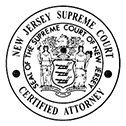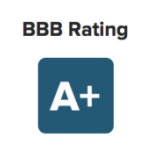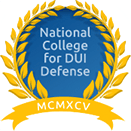Union County NJ Money Laundering Charges
Whenever the proceeds of a criminal activity are funneled into the economy through, for example, a legitimate business, exposure to a money laundering charge is triggered. While money laundering is frequently encountered as a federal offense in United States District Court of New Jersey, there is also a potent state violation that often crops up in Union County. Whether the result of distribution of cds/drugs, mortgage fraud, insurance fraud (e.g. medicaid, life insurance, disability insurance), credit card fraud, identity theft or another illegal enterprise, allegations of money laundering must be taken extremely serious. A conviction in the Criminal Division in Elizabeth results in years in prison and the potential for hundreds of thousands in fines.
Our team of lawyers include several former prosecutors and a staff with over 100 years of collective defense experience. An attorney with the tools to protect your interests against a money laundering charge arising in Elizabeth, Linden, Clark, Springfield, Union or another municipality in Union County. The attorneys at the Law Offices of Jonathan F. Marshall have prepared the following summary of the NJ Money Laundering Law for your benefit. If you need representation, do not hesitate to contact our Union Office at 908-272-1700 as initial consultations are free of charge.
NJ Money Laundering Law – N.J.S.A. 2C:21-25
The money laundering law is set forth at N.J.S.A. 2C:21-25. In this regard, it is a crime for a person to do any of the following with respect to property reasonably believed to be derived from criminal activity: (1) transport or possess; (2) engage in transactions; or (3) organize, supervisor or control the property. Property is deemed to be “derived from criminal activity” the facts are such that a reasonable person would be aware that there is a substantial and unjustifiable risk that the property was obtained illegally. In other words, the facts must be such that the defendant’s conduct, in engaging in one of the three (3) prohibited activities, represented a gross deviation from the standard that a reasonable person would have observed. Accordingly, the first thing the prosecutor must establish is that some form of criminal conduct took place, for example, theft by deception. Second, the state must prove that the criminal activity resulted in proceeds in the form of money or property. Third, it must be proven, beyond reasonable doubt, that the defendant facilitated the “washing” or “laundering” of the proceeds. The money laundering law also establishes a separate violation under subsection (e) of 2C:21-25 for purposely evading a transaction reporting requirement under New Jersey or Federal Law.
Penalties & Sentencing Considerations
- Grading of Offense. If the amount involved is $500,000 or more, money laundering is first degree crime. It is a second degree crime where the proceeds laundered have a value of at least $75,000 but less than $500,000. Laundering of less than $75,000 is a third degree crime. In calculating the amount of property involved in a money laundering offense, the state is permitted to combine (a.k.a. aggregate) all of the money or property dealt with from one scheme or course of conduct.
- Term of Incarceration. First degree money laundering carries not only a jail term of 10-20 years in state prison but also a mandatory period of parole ineligibility. A defendant must serve at least one-third and as much as one-half, as determined by the sentencing judge, of the prison term imposed before they may be considered for parole. This is referred to as a mandatory minimum term. Second degree money laundering can result in up to 10 years in prison and third degree money laundering carries a maximum jail term of 5 years. In addition, any of these terms of incarceration are to run consecutive to those imposed for committing the underlying drug dealing or other criminal activity that resulted in the proceeds.
- Fines. The court may impose a fine equal to three (3) times the value of all property involved in the criminal activity.
- Anti–Money Laundering Penalty. The court may also impose, on application by the prosecutor, an anti-money laundering penalty. The penalty is $500,000, $250,000 and $75,000 in the case of a first degree, second degree and third degree, respectively. Alternatively, the court may impose an anti-money laundering penalty equal to three (3) times the value of any property involved in a money laundering activity.
Skilled Defense Lawyers To Fight Your Elizabeth NJ Money Laundering Offense
The consequences of a money laundering indictment can, as you have seen, have life changing consequences. There is not only significant jail exposure but also monetary penalties that are as serious as any offense set forth under the New Jersey Criminal Code. If you have been charged with money laundering it is therefore highly advisable that you retain the best defense attorney you can afford. The lawyers at our Union NJ law firm, The Law Offices of Jonathan F. Marshall welcome the opportunity to discuss their qualifications. We are one of the largest criminal firms in the entire state, possess over 100 years of combined experience, and include a team of former prosecutors that are ready to defend your Cranford, Westfield, Roselle, Hillside, Kenilworth or Plainfield money laundering charge. Our credentials are certainly unique for defending your money laundering offense. Call our Union Township Office at 908-272-1700 for a free consultation.












